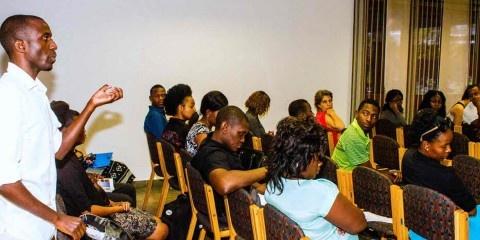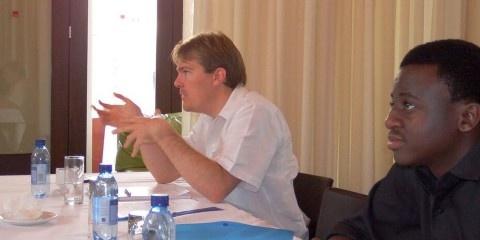I farm in the great Kunene region and this year of all years we feel the impacts of climate change the most. The farming business has become very fragile as we depend on Mother Nature for watering our crops and the veld in which our livestock graze. As such, the highly unpredictable rainfall in Namibia negatively impacts our farming activities. It...
Climate change projections for Namibia project temperature increases of 1 to 4°C and increased variability in rainfall patterns. The climate risks associated with temperature increase and unpredictable rainfall will impact subsistence farmers and consequently the rural Namibian population that rely mainly on rain-fed agriculture. The Adaptation at Scale in Semi-Arid Areas (ASSAR) is conducting research to deepen understanding of the drivers...
The EU is committed to become a highly energy-efficient, low-carbon economy, and is therefore at the forefront of international efforts to tackle Climate Change. Building a European Energy Union with a forward-looking climate policy is a top priority for the European Commission. As such, the EU has chosen the headship mode of leading by example, being the first region to have...
Paulus Hamutenya takes a close look at the tomato plant in his field. With his hands he feels the texture of the stems and leaves on the plant – nodding with distinct approval at the combination of quality, colour and thickness. “The organic fertilizer we have tried out for the last 2 months is definitely working”, he remarks with inevitable pride....
Climate Change Adaptation is a buzzing topic on the international agenda. But is it clear what adaptation to climate change in relation to ecosystems and their services means? Choosing the right approach and designing effective ecosystem-based adaptation measures is of utmost importance in order to successfully shield from the impacts of climate change. The Ministry of Environment and Tourism (MET), in...
Water in Namibia is free, but it also has a cost. This cost is the cost to supply water from its source to the tap of the user and does not include any cost for the water itself. The cost to supply water under the prevailing arid conditions in Namibia is very high and the therefore water is expensive. The trick...
On the 1st of October, 2015, the Water Youth Namibia, Hanns Seidel Foundation (HSF) Namibia and Desert Research Foundation of Namibia (DRFN) co-hosted a public dialogue focused on the role of youth in addressing Namibia’s water scarcity challenges. Water’s central role in the biosphere has long implied that several of the most important challenges confronting human development are related to fresh...
From the 27-28 August 2015, a Climate Change Media Training for Namibian Journalist was held in Windhoek. The training was initiated by the Media for Environment, Agriculture and Sustainable Development in Namibia (Mead-Namibia) and was funded by the Hanns Seidel Foundation (HSF) Namibia, through its Environmental Awareness and Climate Change Project. It was held at the Namibian Institute of Culinary Education (NICE)...
The United Nations Development Programme (UNDP) in Namibia has been supporting the Government and People of Namibia with the implementation of development programmes and projects since 1990. Such programmes and projects generally aim to improve the protection and conservation of natural resources, particularly renewable ones that people depend on for daily survival, i.e. use for food and to secure incomes and...
The extent to which any Government facilitates the requirements for equitable access to water and sanitation by its citizens has been under discussion for a long time by the international community. On 28 July 2010, after years of campaigning to capture the right to water and sanitation services, the United Nations General Assembly eventually passed Resolution 64/292 in which the right...

